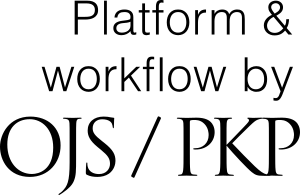Patient-reported outcomes in oral oncology: new approaches, contemporary visions
DOI:
https://doi.org/10.48797/sl.2025.304Keywords:
PosterAbstract
Background: Emerging trends in Patient Reported Outcomes (PROs) are transforming healthcare by centering the patient experience and emphasizing Quality of Life (QoL) in clinical decision-making [1]. Objective: Analyze the benefits of using PROs in daily critical practice based on the experience of our research group and literature review. To explore new strategies to apply results more efficiently in clinical decisions. Methods: A systematic literature review was conducted across PubMed, Cochrane Library, B-On, and Scielo, targeting publications from 2020-2025 in English and Portuguese, resulting in the analysis of 83 studies. Study selection followed the PICO framework and PRISMA guidelines. Consecutive outpatients at the Otorhinolaryngology and Head and Neck Departments of IPO-Porto completed PRO questionnaires prior to clinical consultations, as part of routine care. A digital platform facilitated the assessment of QoL. Inclusion criteria encompassed relevant keywords in the publication. Exclusion criteria included duplicate articles and those not aligned with the topic. Data analysis employed Item Response Theory using the Rasch model (WinRasch software), enabling the construction of a hierarchical measurement scale and evaluation of item fit statistics. Results: Monitoring PROs in head and neck oncology at IPO-Porto has proven valuable for clinical decision-making, identifying patient needs, and supporting stepped-care models. It aids in risk stratification and prognosis prediction, enhancing clinical practice, research, and strategies for optimizing patients' QoL [2]. Technological advances, including smartphones, wearables, and AI, enable real-time data collection, disease monitoring, personalized treatment, and early intervention. The transition to electronic PROs improves data accuracy, efficiency, and adaptability, facilitating culturally sensitive tools that promote patient understanding, adherence, and shared decision-making [3]. Conclusions: Integrating information technology in PROs assessment is crucial for standardizing clinical evaluations and decision-making, thereby enhancing the organization and efficiency of clinical research. This approach improves communication and the transfer of evaluative data into clinical practice, enriching the clinical understanding and supporting informed decision-making in healthcare.References
1. Silveira, A. et al. Patient reported outcomes in oncology: changing perspectives-a systematic review. Health Qual Life Outcomes 2022, 20(1), 82, doi: 10.1186/s12955-022-01987-x.
2. Silveira, A. et al. Head and Neck Cancer: Improving Patient-Reported Outcome Measures for Clinical Practice. Curr Treat Options Oncol 2018, 19(11), 59, doi: 10.1007/s11864-018-0578-1.
3. Saadeh, C. et al. Patient-reported outcomes for oral oncolytic therapy: A pilot study utilizing an electronic patient portal in a community cancer center. J Oncol Pharm Pract 2023, 29(8), 1974-1981. doi: 10.1177/10781552231162013.
Downloads
Published
How to Cite
Issue
Section
License
Copyright (c) 2025 Inês Castro, Maria Inês Guimarães, Sandra Gavinha, Pedro Lopes Ferreira, Isabel Silva, Nuno Ribeiro, Teresa Sequeira, Augusta Silveira

This work is licensed under a Creative Commons Attribution 4.0 International License.
In Scientific Letters, articles are published under a CC-BY license (Creative Commons Attribution 4.0 International License), the most open license available. The users can share (copy and redistribute the material in any medium or format) and adapt (remix, transform, and build upon the material for any purpose, even commercially), as long as they give appropriate credit, provide a link to the license, and indicate if changes were made (read the full text of the license terms and conditions of use).
The author is the owner of the copyright.









